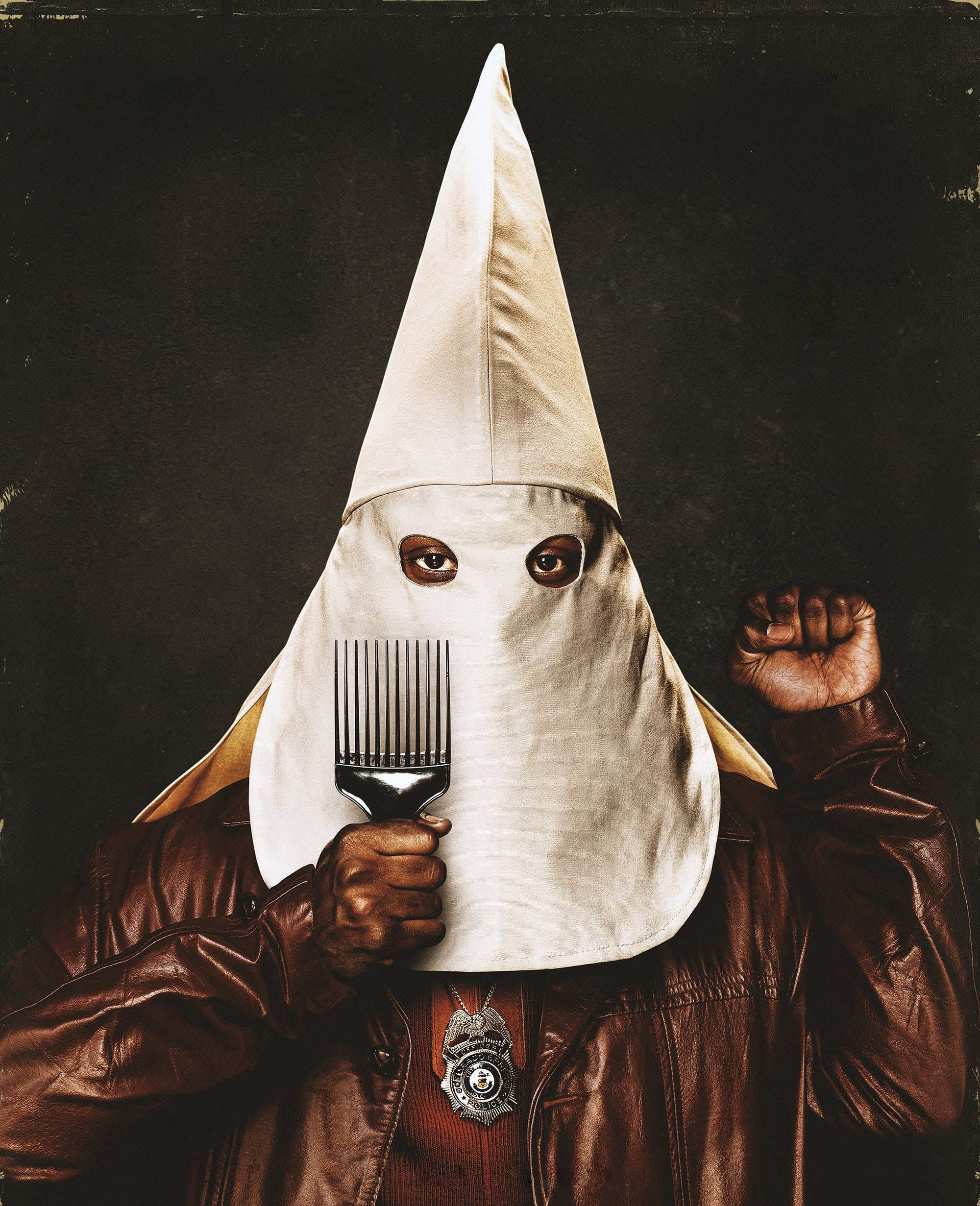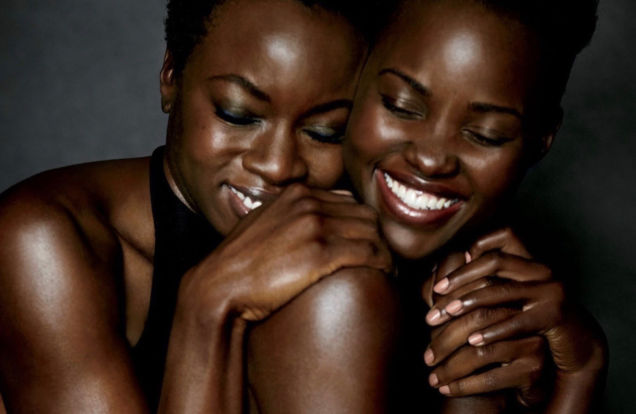BlacKkKlansman
Spike Lee's Latest Could Be His Greatest

Hype is high for BlacKkKlansman, a provocative new film from acclaimed director Spike Lee (Chi-Raq, She’s Gotta Have It, Summer of Sam). Based on the unbelievable true story of Ron Stallworth, the first African-American police officer in the Colorado Springs Police Department, who successfully infiltrated the Ku Klux Klan, America’s preeminent hate group.
The premise sounds unbelievable, and it almost is, but it’s true: Stallworth operated mostly by telephone, earning the trust and approval of David Duke and other KKK higher-ups, while a white officer (fictionalized here as Flip Zimmerman, played by Star Wars‘ Adam Driver) would conduct any face-to-face meetings which would inevitably be impossible to avoid.
Spike Lee has never been one to shy away from controversy, and has always been a major advocate for black pride, which has led to accusations of racism against white, as well as a label as an “angry black filmmaker,” which he wears with a degree of gleeful satisfaction. After all, placated sleepwalkers don’t instigate change; only those who are angry and awake can move their lives forward.
John David Washington (son of Denzel) got his start in the short-lived United Football League before turning his attention to acting full-time. He can currently be seen in the Robert Redford film, The Old Man and the Gun, as well as the HBO series, Ballers. For his role in BlacKkKlansman, he’s earned serious acclaim, to the point where many believe he’s finally “arrived” as an A-list star. Adam Driver has also earned praise for his turn as Zimmerman, a white – but Jewish – cop who has to learn that the struggle against white nationalism isn’t a black issue, but an American one, and that everybody needs to fight back against the forces of hatred, epitomized here by David Duke. Topher Grace (That 70’s Show, Spider-Man 3) is generally regarded as an all-American sweetheart, but his turn as the embodiment of hateful racism is a not-so-subtle reminder that evil doesn’t always wear an enraged scowl; it can smile and have a funny porn ‘stache.
Critics agree that BlacKkKlansman might just be Spike Lee‘s greatest film yet. As of this writing, the film currently sits at a fantastic 98% on Rotten Tomatoes, with much praise given to its effortless blending of satirical humor with socially relevant drama, though the tonal dissonance and matter-of-fact portrayal of systemic racism has rubbed some soft-skinned reviewers the wrong way. The film also takes aim directly at President Trump, a man whose supporters deny their own racism, but scoff at the idea of universal healthcare, humane immigration policies, and the right to a living wage, particularly for those living on the wrong side of the poverty line. Maybe Trump’s rubes don’t know they are playing right into the hands of the KKK, the alt-right, the white nationalists, and the Nazis, but make no mistake – they are.
BlacKkKlansman is funny, earnest, and unapologetic in its blackness; both Washington and co-star Laura Harrier (Spider-Man: Homecoming) wear gloriously huge and well-maintained afro hairstyles, which symbolize black pride, and Harrier plays an activist seeking social justice for her people, and she refuses to be silenced by those she irks. Revolution isn’t easy, but Americans aren’t supposed to be the people who choose the easy path; peace is harder to maintain than war, and overcoming prejudice and racism can seem more difficult than fueling the fires of hatred. John F. Kennedy said it best when he described the merit of NASA’s mission to send Americans to the Moon, though he could just as easily be talking about civil rights, or any goal which may seem unattainable to the jaded or apathetic:
“We set sail on this new sea because there is new knowledge to be gained, and new rights to be won, and they must be won and used for the progress of all people… We choose to go to the Moon in this decade and do the other things, not because they are easy, but because they are hard.”
BlacKkKlansman is in theaters now.


